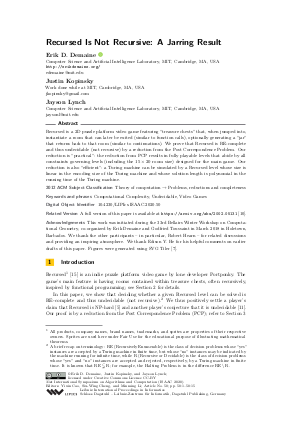LIPIcs.ISAAC.2020.50.pdf
- Filesize: 1.14 MB
- 15 pages

 Creative Commons Attribution 3.0 Unported license
Creative Commons Attribution 3.0 Unported license








Feedback for Dagstuhl Publishing